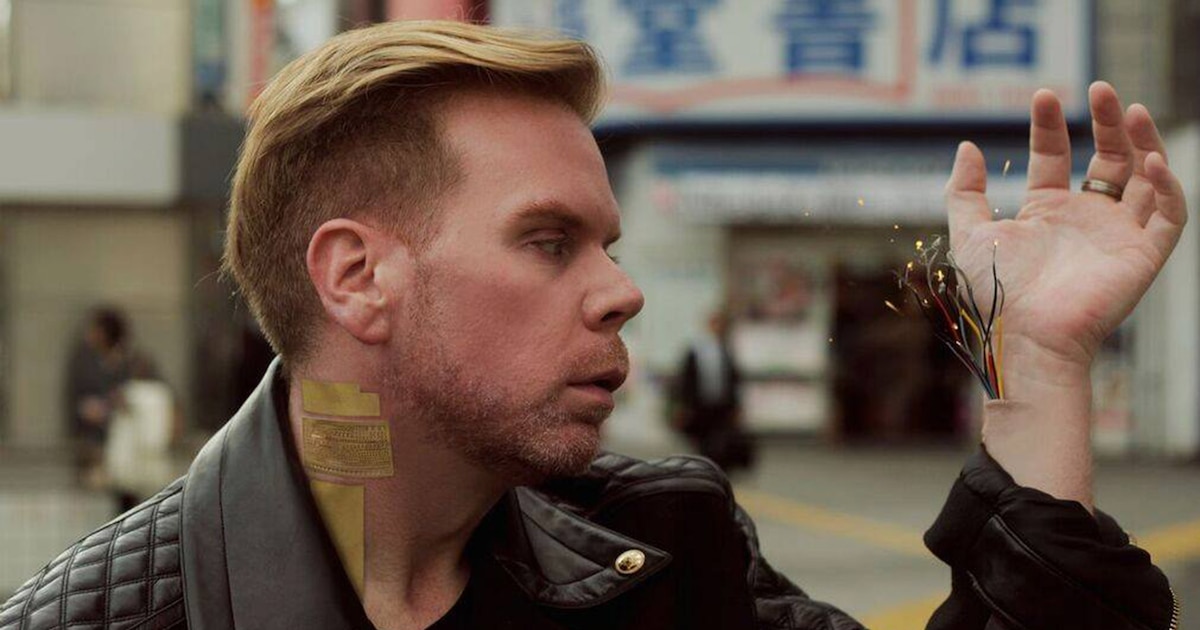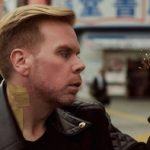
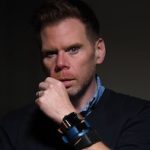

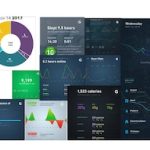
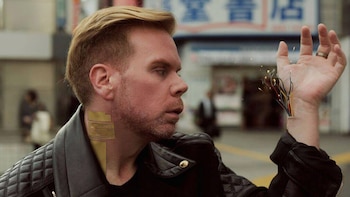
The Lotus 1-2-3 was the first spreadsheet. It was launched in the mid-’80s, before Excel saw the light. There Chris Dancy, now 55 years old, began documenting his life during his adolescence: at first he recorded articles about his idol Michael Jackson, but over time he expanded his focus to more intimate and everyday aspects of his life, to emails, photos, chat conversations, menus and much more. What started as a hobby soon became a lifestyle, even something close to an obsession.
For some years now, Dancy is known as “the most connected man in the world”a true pioneer of digital tracking of personal data. As technology advanced, he evolved too. Back in the 2000s, he refined his data collection methods using automated tools like Yahoo Pipes and RSS feeds, which allowed him to integrate everything into his digital life record. With the explosion of social networks, he used platforms like MySpace and Twitter to extract his data and store it locally.
“My journey toward self-quantification began out of curiosity and necessity. In 2008, I found myself struggling with physical and mental health issues, and realized that I needed to take control of my life in a way that felt viable to me. As technology advanced, I began to integrate sensors, devices and apps into my daily routine, not only to monitor my health, but to gain a broader understanding of how my body and mind interacted with the world,” Dancy said in an interview like Infobae.
The initial little experiment snowballed into overdrive as he saw how effective these tools were at giving him real-time answers. The deeper he dug, the more he realized he could use data to make meaningful, lasting changes. “It became more than just a follow-up: it was a transformation,” he noted.
Dancy has counted the exact number of devices he has on his body and in his home in Brentwood, a small town in Tennessee, United States: There are 1710 devices that help you quantify and record everything you doto measure your vital – and not so vital – signs daily.
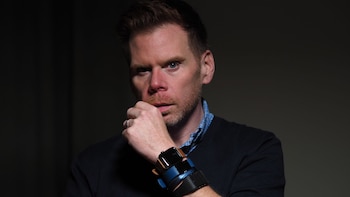
From your smart thermostat to your light bulbs, everything generates data that is stored and analyzed to help you better understand your habits. Even your car is equipped to monitor not only your speed, but also your heart rate and how often you accelerate. It was created and lives in a completely quantified environment.
一Having so many sensors to track your life, have you never had health problems due to the implantation of the devices, for example?
一Luckily, I have never had serious health problems due to the sensors or devices I use. Most of the tools I depend on are non-invasive or wearable, so they fit into my life without causing too much disruption. In terms of daily life, it’s about finding balance. I always prioritize ease of use and comfort, so I am selective about the devices I choose to use long term. If a sensor or device seems too cumbersome or distracting, I gradually remove it. The goal is for these tools to improve my life, not complicate it.
Far from complicating his life, he assures, this hypertechnological approach, becoming a “conscious cyborg”, as he defines himself, allowed him to gain health and well-being. Dancy quit smoking and lost weight after improving her diet. All changes in habits are attributed to the constant monitoring of your vital data. For him, it’s not just passive monitoring, but an active process of personal improvement, in which data guides you towards healthier decisions.
By 2010, he had developed a system that not only collected information, but categorized it efficiently. The areas of his life were divided into categories such as “Finance”, “Health” and “Entertainment”. They gave him more precise organization and management of his daily activities.
In 2011, it decided to take its data logging a step further, differentiating the types of data it collected. It began sorting into categories: soft data (manipulable information about identity), hard data (more tangible measurements like body weight or blood pressure), and hard data (like DNA or microbiome information).
By 2012, the outside world also began to have an impact on the amount of data it collected. Security cameras, club cards and other external devices increasingly captured information about their movements and behaviors. Your daily life has become an endless set of data that you view on a Google calendar. “My life became a Wikipedia of myself”he says a little jokingly, a little seriously.
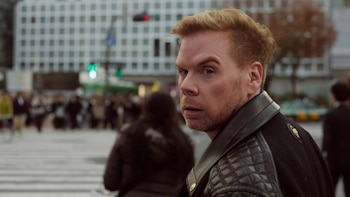
The notion of privacy, according to Dancy, is nothing more than a social construction, an illusion that generates a feeling of control, when in reality it is a concept that fades. In their case, the destruction of privacy was not a sacrifice, but an achievement. When he abandoned that idea, he found freedom in sharing his data and turned his life into “a cycle of transparency.”
Furthermore, the current technology consultant and speaker invites us to reflect on what it could mean for humanity to live in a post-privacy world, to question our own relationship with privacy, which in general is more flexible than one believes. In his vision, people are willing to trade privacy for convenience or economic benefits, a pattern he observed in his own life when he began using technology to quantify and monitor his daily behavior.
Over the years, Dancy experimented with thousands of small “hacks” that allowed him to obtain valuable data about his life and, eventually, transform his routine in pursuit of new goals.
一Many people see technology as a distraction or even stress factor. How did you manage to turn it into a tool to improve your life?
一For many, technology can be overwhelming, but for me it has always been a matter of intentionality. The key is to make sure technology has a purpose, whether it’s improving my health, helping me manage stress, or deepening my relationships. I always set clear limits on how and when I use it. I don’t let it dictate my life. Instead, I use it as a way to amplify what is already important to me.
一In your opinion, human behavior is the “definitive interface” in the future of computing. How do you think this concept will transform the relationship between humans and technology?
一I always believed that the future of computing is not about machines, but about how we integrate technology with human behavior. True magic happens when technology becomes an extension of ourselves, improving our decisions, emotions and interactions. As we move forward, I think we’ll see more intuitive technology that learns from our behaviors, allowing us to interact with devices in ways that feel natural and fluid. In this world, technology is not a distraction, but a silent and invisible assistant.
By the end of 2012, he had already gathered a wealth of information that opened up the possibility of choosing healthier paths: he began to lose weight, relaxed his mind through meditation, and managed to quit smoking. Every aspect of his life, from his health to his emotional well-being, he says, improved thanks to the constant collection and analysis of data.
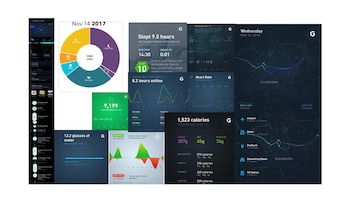
His experience with technology allowed him to create a system of constant responses: his actions generate data that then influence his decisions. “My life became a continuous feedback loop of conditions and responses.”. Its monitoring is so meticulous that even when you participate in work conferences, you receive automatic notifications about your environment through sensors, which even record the volume of your voice. No aspect of his life was left out of this process of extreme self-observation.
By early 2014, the results were evident. Dancy had lost almost 45 kilos, improved his financial situation – he became more prudent with his expenses – and managed to control his anxiety after quitting smoking.
一How is all that information collected prioritized to achieve habit changes?
一With so much data, prioritization is key. I focus on metrics that impact my core values: health, relationships, productivity, and well-being. Over time, I learned which data points give me the most useful information. For example, heart rate variability (HRV) is one I look at often, as it tells me a lot about my stress levels and overall health.
一I imagine it can be overwhelming to have so much personal data permanently.
一Yes, it can be overwhelming at times, but I developed a system that allows me to see patterns instead of drowning in raw data. The trick is learning when to zoom in and when to zoom out, using technology to provide context without letting it consume you.
一Isn’t there a danger in relying too much on data to make personal decisions and almost completely eliminating instinct?
一There is certainly a danger in relying too much on data and I am well aware of that. Although I use them to inform my decisions, I do not let them replace instinct or intuition. There is a human element to decision-making that data cannot capture: the emotional and spiritual aspects that numbers cannot quantify. I consider data to be a guide, not a dictator.
一What would you say to people who don’t understand and question your lifestyle?
一I understand why some people may question my lifestyle. It’s unconventional and not for everyone. But for me it is a way to live more consciously, to understand myself better and to stay in control of my health and well-being. To those who don’t understand it, I would say: it is not about becoming a machine, but about using the tools available to live a more human life, a more conscious, more connected and, ultimately, more fulfilling life.
